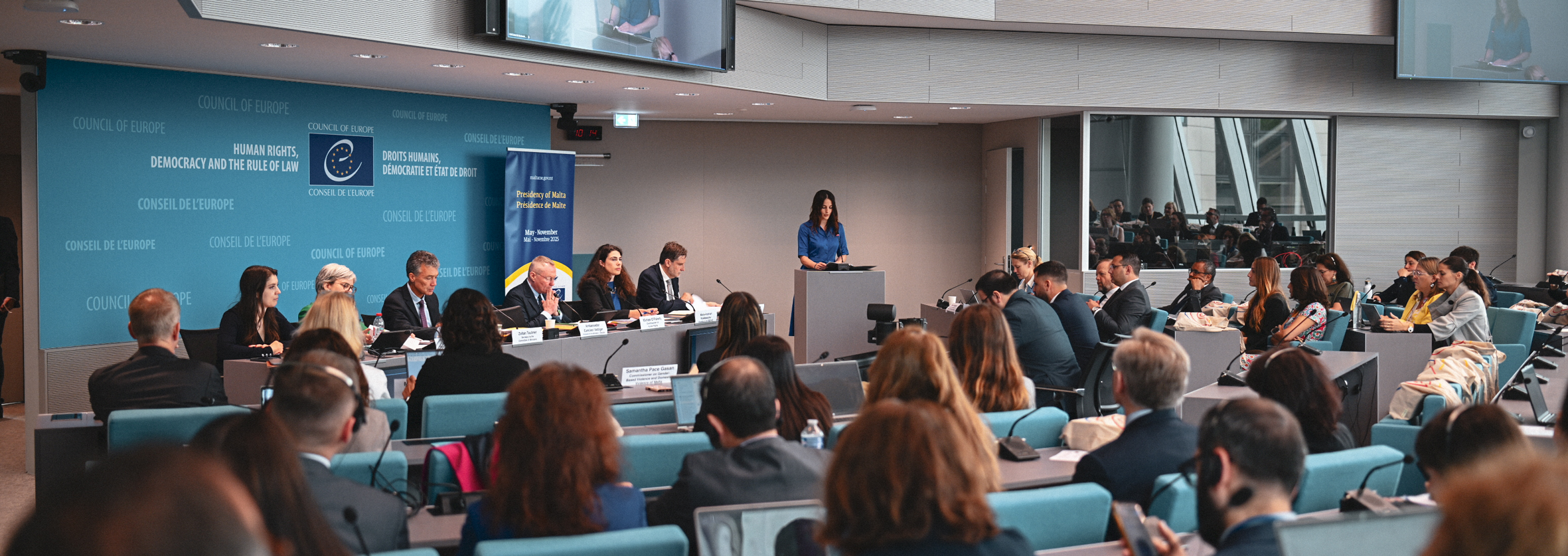STRASBOURG, 5 June 2025 — Under Malta’s Presidency of the Committee of Ministers, leading European officials and experts gathered at the Council of Europe for an urgent informal meeting aimed at dismantling harmful gender stereotypes and addressing gender-based violence. The high-level discussion, themed “Dismantling Gender Norms”, underscored the urgent need for cultural change, legal reform and accountability in the digital realm.
Opening the meeting, Malta’s Minister for Justice and Reform of the Construction Sector, Hon. Jonathan Attard and the Deputy Secretary General of the Council of Europe, Mr Bjorn Berge, delivered two key addresses, underscoring that the importance of tackling gender-based violence is not just a matter of equality – it is a matter of survival. Hon. Attard described gender stereotypes as “the key to inequality” and a root cause of discrimination, violence, and femicide.
“Gender stereotypes are not relics of the past, but ongoing realities that we must address at their core,” emphasised Hon. Attard, reflecting Malta’s commitment to comprehensive legislative and institutional reforms. These initiatives include the legal recognition of femicide, enhanced judicial resources for domestic violence cases, and upcoming measures such as panic buttons and electronic monitoring for victims. Malta is also advocating for gender equality through workplace certification, equal pay initiatives, and campaigns against sexist hate speech.
Chaired by Ambassador Francesca Camilleri Vettiger, Malta’s Permanent Representative to the Council of Europe, the meeting drew participation from Permanent Representatives, gender equality ambassadors and members of prominent human rights organisations. Two panel discussions delved into topics such as toxic masculinity, early education, online disinformation and the impact of social media on reinforcing gender norms.
The statistics presented painted a stark picture: one in three women in Europe has faced physical or sexual violence. This figure has remained unchanged for the past decade, while only one in eight cases are reported to the police. The annual economic toll of such violence is estimated at €289 billion across the EU.
The meeting featured insights from several influential figures:
Michael O’Flaherty, Commissioner for Human Rights at the Council of Europe, underscored the danger of gendered disinformation and technology-facilitated abuse.
Maria-Andriani Kostopoulou, President of GREVIO, stressed that violence against women not only arises from but also perpetuates gender inequality.
Joanna Goodey from the EU Agency for Fundamental Rights presented data revealing the profoundly gendered nature of digital abuse.
Jean-Christophe Le Toquin, co-founder of STISA, advocated for a survivor-first approach grounded in affirmative consent.
UK barrister Michael Polak called for urgent training in judicial systems to dismantle myths and stereotypes surrounding gender violence cases.
Samantha Pace Gasan, Malta’s Commissioner on Gender-Based Violence, shared national strategies centred on prevention and early education.
Dr Daniel Guinness of Beyond Equality advocated for engaging men and boys through empathy, identity, and tailored interventions.
H.E. Tanja Gonggrijp, Dutch Ambassador and Chair of the Istanbul Convention Committee concluded by emphasising the importance of dismantling gender norms in upholding democratic values.
The event marked a significant milestone in Malta’s presidency, reaffirming its commitment to human rights advocacy. As Europe continues to grapple with persistent structural inequality and increasing digital threats, the consensus is clear: gender-based violence is not inevitable; it is preventable.

